
Classroom Setup
Physical | Face-to-Face
Coverage
Basic to Advance
Duration
2 Days | 20+ Hours
9:00am - 7:00pm
Unlimited Retakes
Finish the course & get a 1 year unlimited refresher classes
- Class Setup: Physical | Face-to-Face
- Coverage: Basic to Advance
- Duration: 2 Days | 20+ Hours
- Unlimited Retakes valid for 1 Year
- Classroom Setup: Physical | Face-to-Face
- Coverage: Basic to Advance
- Duration: 2 Days | 20+ Hours
- Unlimited Retakes valid for 1 Year
Actual Rack Mount Servers for a more realistic experience
Inventive Media is the 1st and only training center to provide actual Rack Mount Physical Servers per student for use in their laboratory exercises. Such setup allows students to experience a real life example or scenario of working with live servers, to make the transition easier once they start working on an actual server environment.
Overview
This hands-on course provides the fundamental networking skills required to deploy and support Windows Server 2016 in most organizations. It covers IP fundamentals, remote access technologies, and more advanced content including Software Defined Networking.
Audience profile
This course is intended for existing IT professionals who have some networking knowledge and experience and are looking for a single course that provides insight into core and advanced networking technologies in Windows Server 2016. This audience would typically include:
Network administrators who are looking to reinforce existing skills and learn about new networking technology changes and functionality in Windows Server 2016.
System or Infrastructure Administrators with general networking knowledge who are looking to gain core and advanced networking knowledge and skills on Windows Server 2016.
The secondary audience for this course is those IT professionals who are looking to take the MCSA 70-741: Networking with Windows Server 2016 exam.
At course completion
After completing this course, students will be able to:
- Plan and implement an IPv4 network.
- Implement Dynamic Host Configuration Protocol (DHCP).
- Implement IPv6.
- Implement Domain Name System (DNS).
- Implement and manage IP address management (IPAM).
- Plan for remote access.
- Implement DirectAccess.
- Implement virtual private networks (VPNs).
- Implement networking for branch offices.
- Configure advanced networking features.
- Implement Software Defined Networking.
What are the Prerequisites?
In addition to professional experience, students who attend this training should already have the following technical knowledge:
- Must have completed the course: Windows Server Installation Storage and Compute (70-740)
- Experienced working with any Windows Server Platform (2008, 2012, 2016)
- Experienced working in a Windows Server infrastructure enterprise environment
- Knowledge of the Open Systems Interconnection (OSI) model
- Understanding of core networking infrastructure components and technologies such as cabling, routers, hubs, and switches
- Familiarity with networking topologies and architectures such as local area networks (LANs), wide area networks (WANs) and wireless networking
- Some basic knowledge of the TCP/IP protocol stack, addressing and name resolution
- Experience with and knowledge of Hyper-V and virtualization
- Hands-on experience working with the Windows client operating systems (Windows 7, 8.1, 10)
Students can meet the prerequisites by attending the following course, or by having knowledge and skills equivalent to:
What are the Inclusions?
- Certificate of Course Completion
- References Materials (PDF)
- Software Evaluation Copy
- Exam Reviewer
- Other Add-ons
How to avail the Unlimited Free Retakes?
Unlimited Retakes = Unlimited hours of Learning!
We take in to account that not everyone is a fast learner. So learn at your own pace. If you don’t get it that first time around then come back for more. Students may retake that class absolutely for FREE!
To Avail: Finish the course to qualify for the unlimited refresher classes
Validity: 1 Year
What you'll Learn
Module 1: Planning and implementing an IPv4 network
This module also explains how to use fundamental networking tools and techniques to configure and troubleshoot IPv4-based networks.
Lessons
- Planning IPv4 addressing
- Configuring an IPv4 host
- Managing and troubleshooting IPv4 network connectivity
Lab : Planning an IPv4 network
- Planning the IPv4 address assignments
Lab : Implementing and troubleshooting an IPv4 network
- Verifying IPv4
- Troubleshooting IPv4
After completing this module, students will be able to:
- Plan IPv4 addressing.
- Configure an IPv4 host.
- Manage and troubleshoot IPv4 network connectivity
Module 2: Implementing DHCP
This module explains how to plan and implement DHCP to support the IPv4 infrastructure.
Lessons
- Overview of the DHCP server role
- Deploying DHCP
- Managing and troubleshooting DHCP
Lab : Implementing DHCP
- Planning a DHCP server implementation
- Implementing the DHCP configuration
- Validating the DHCP implementation
After completing this module, students will be able to:
- Explain the DHCP server role.
- Deploy DHCP.
- Manage and troubleshoot DHCP.
Module 3: Implementing IPv6
This module explains how to implement IPv6, and how to integrate IPv6 and IPv4 networks.
Lessons
- Overview of IPv6 addressing
- Configuring an IPv6 host
- Implementing IPv6 and IPv4 coexistence
- Transitioning from IPv4 to IPv6
Lab : Configuring and evaluating IPv6 transition technologies
- Reviewing the default IPv6 configuration
- Implementing DHCPv6
- Configuring network integration by using ISATAP
- Configuring native IPv6 connectivity
- Configuring 6to4 connectivity
After completing this module, students will be able to:
- Describe the features and benefits of IPv6.
- Configure an IPv6 host.
- Implement the coexistence between IPv4 and IPv6 networks.
- Transition from an IPv4 network to an IPv6 network.
Module 4: Implementing DNS
This module explains how to install, configure, and troubleshoot DNS within the organization’s network.
Lessons
- Implementing DNS servers
- Configuring zones in DNS
- Configuring name resolution between DNS zones
- Configuring DNS integration with Active Directory Domain Services (AD DS)
- Configuring advanced DNS settings
Lab : Planning and implementing name resolution by using DNS
- Planning DNS name resolution
- Implementing DNS servers and zones
Lab : Integrating DNS with Active Directory
- Integrating DNS with Active Directory
Lab : Configuring advanced DNS settings
- Configuring DNS policies
- Validating the DNS implementation
- Troubleshooting DNS
After completing this module, students will be able to:
- Implement DNS servers.
- Configure zones in DNS.
- Configure name resolution between DNS zones.
- Configure DNS integration with AD DS.
- Configure advanced DNS settings
Module 5: Implementing and managing IPAM
This module explains how to implement and manage the IPAM feature in Windows Server 2016. This module also explains how to use IPAM to manage services such as DHCP and DNS.
Lessons
- Overview of IPAM
- Deploying IPAM
- Managing IP address spaces by using IPAM
Lab : Implementing IPAM
- Installing the IPAM Server feature
- Provisioning the IPAM Server
- Managing IP address spaces by using IPAM
After completing this module, students will be able to:
- Describe the IPAM functionality and components.
- Deploy IPAM.
- Manage IP address spaces by using IPAM.
Module 6: Remote access in Windows Server 2016
This module explains how to plan for remote access in Windows Server 2016 and how to implement Web Application Proxy.
Lessons
- Overview of remote access
- Implementing the Web Application Proxy
Lab : Implementing Web Application Proxy
- Implementing Web Application Proxy
- Validating the Web Application Proxy deployment
After completing this module, students will be able to:
- Describe remote access.
- Implement Web Application Proxy.
Module 7: Implementing DirectAccess
This module explains how to implement and manage DirectAccess in Windows Server 2016.
Lessons
- Overview of DirectAccess
- Implementing DirectAccess by using the Getting Started Wizard
- Implementing and managing an advanced DirectAccess infrastructure
Lab : Implementing DirectAccess by using the Getting Started Wizard
- Verifying readiness for a DirectAccess deployment
- Configuring DirectAccess
- Validating the DirectAccess deployment
Lab : Deploying an advanced DirectAccess solution
- Preparing the environment for DirectAccess
- Implementing the advanced DirectAccess infrastructure
- Validating the DirectAccess deployment
After completing this module, students will be able to:
- Explain DirectAccess and how it works.
- Implement DirectAccess by using the Getting Started Wizard.
- Implement and manage an advanced DirectAccess infrastructure.
Module 8: Implementing VPNs
This module explains how to implement and manage remote access in Windows Server 2016 by using VPNs.
Lessons
- Planning VPNs
- Implementing VPNs
Lab : Implementing VPN
- Implementing VPN
- Validating the VPN deployment
- Troubleshooting VPN access
After completing this module, students will be able to:
- Plan a VPN solution.
- Implement VPNs.
Module 9: Implementing networking for branch offices
This module explains how to implement network services for branch offices.
Lessons
- Networking features and considerations for branch offices
- Implementing Distributed File System (DFS) for branch offices
- Implementing BranchCache for branch offices
Lab : Implementing DFS for branch offices
- Implementing DFS
- Validating the deployment
Lab : Implementing BranchCache
- Implementing BranchCache
- Validating the deployment
After completing this module, students will be able to:
- Describe the networking features and considerations for branch offices.
- Implement DFS for branch offices.
- Implement BranchCache for branch offices.
Module 10: Configuring advanced networking features
This module explains how to implement an advanced networking infrastructure.
Lessons
- Overview of high performance networking features
- Configuring advanced Microsoft Hyper-V networking features
Lab : Configuring advanced Hyper-V networking features
- Creating and using Hyper-V virtual switches
- Configuring and using the advanced features of a virtual switch
After completing this module, students will be able to:
- Describe the high performance networking enhancements in Windows Server 2016.
- Configure the advanced Microsoft Hyper-V networking features.
Module 11: Implementing Software Defined Networking
This module explains how to implement SDN.
Lessons
- Overview of SDN.
- Implementing network virtualization
- Implementing Network Controller
Lab : Deploying Network Controller
- Preparing to deploy Network Controller
- Deploying Network Controller
After completing this module, students will be able to:
- Describe SDN.
- Implement network virtualization.
- Implement Network Controller.
Registration
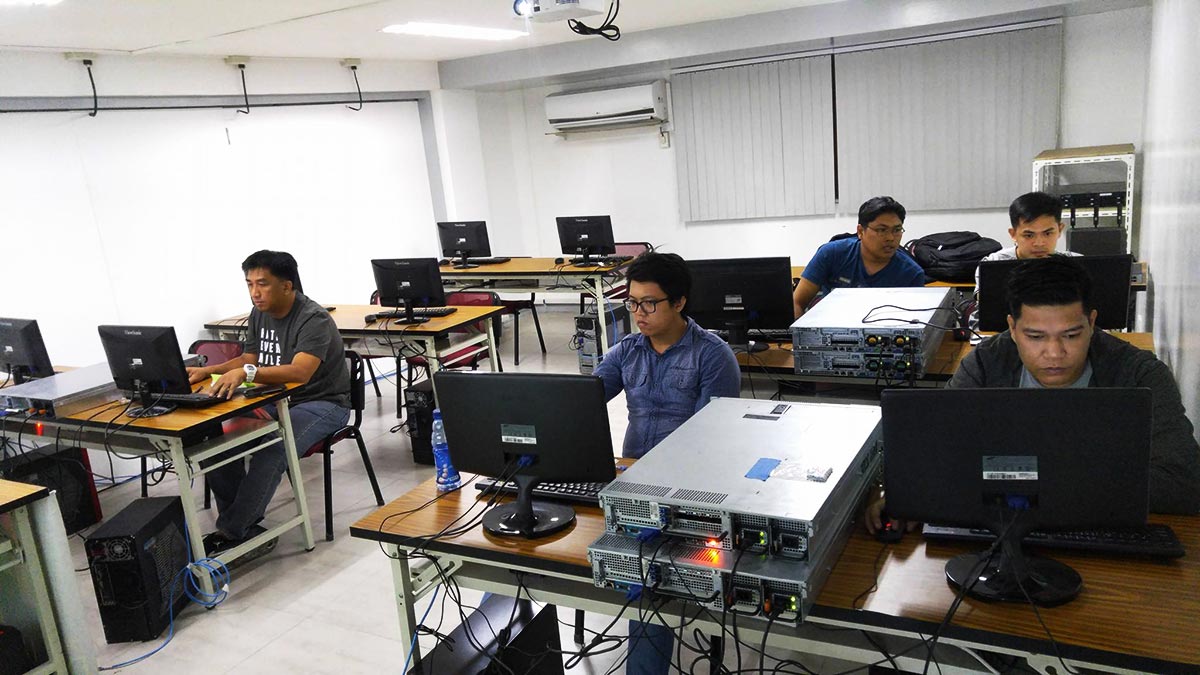
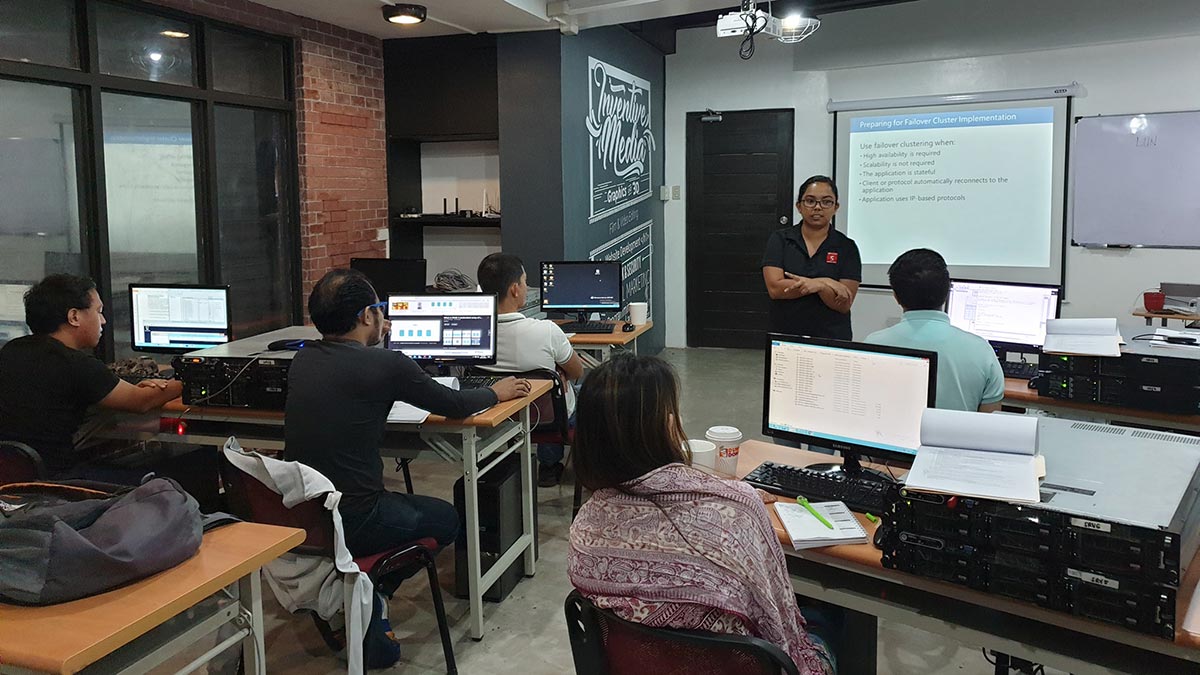
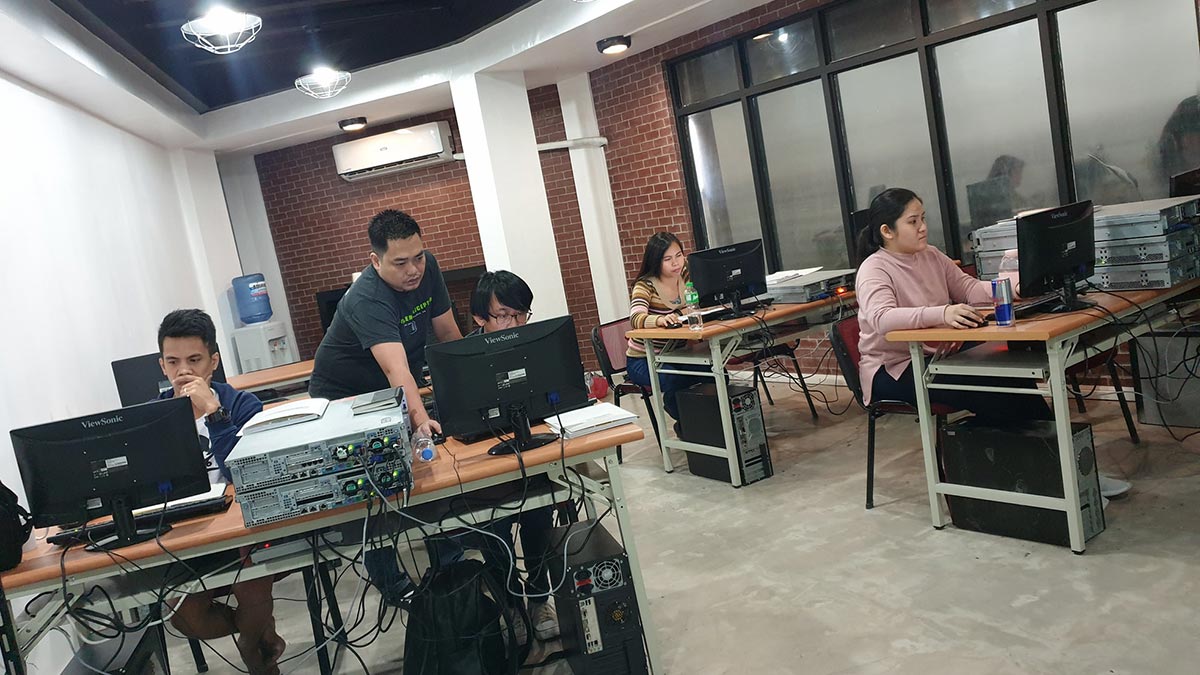
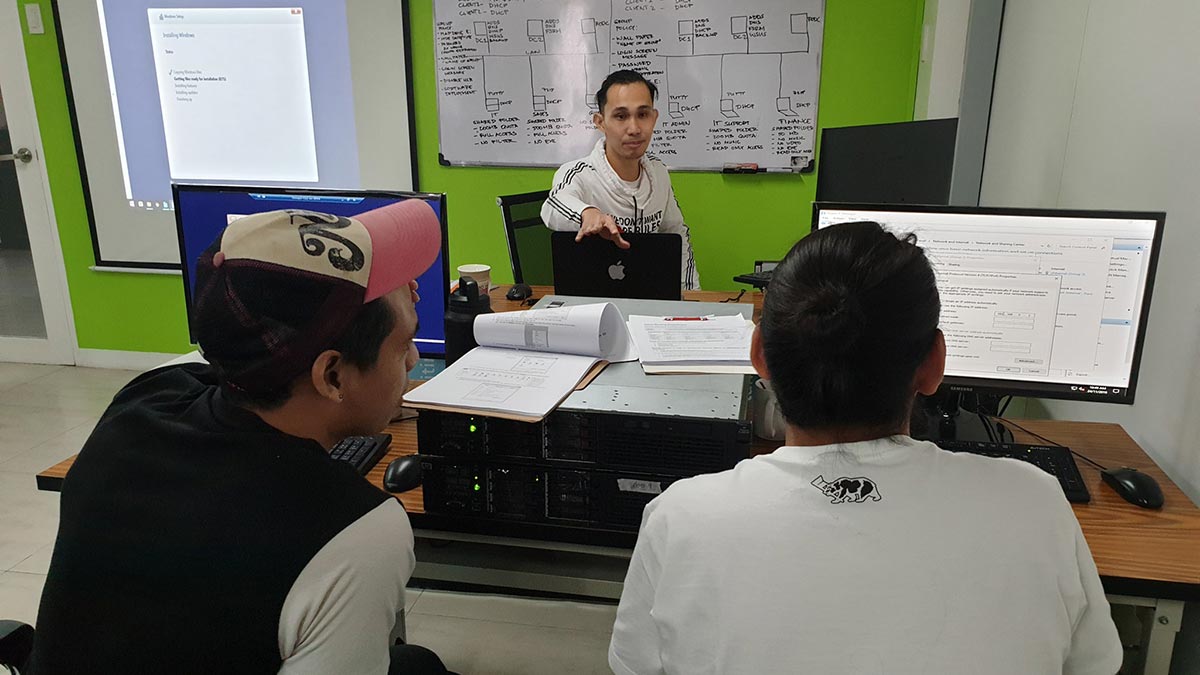
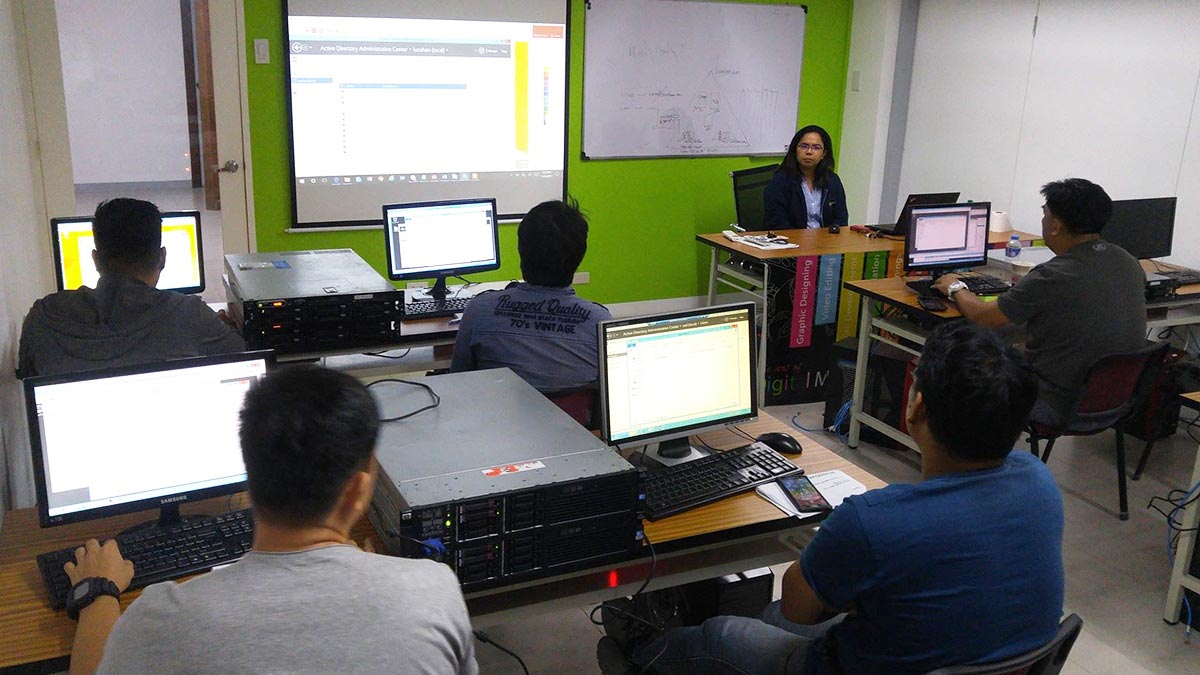
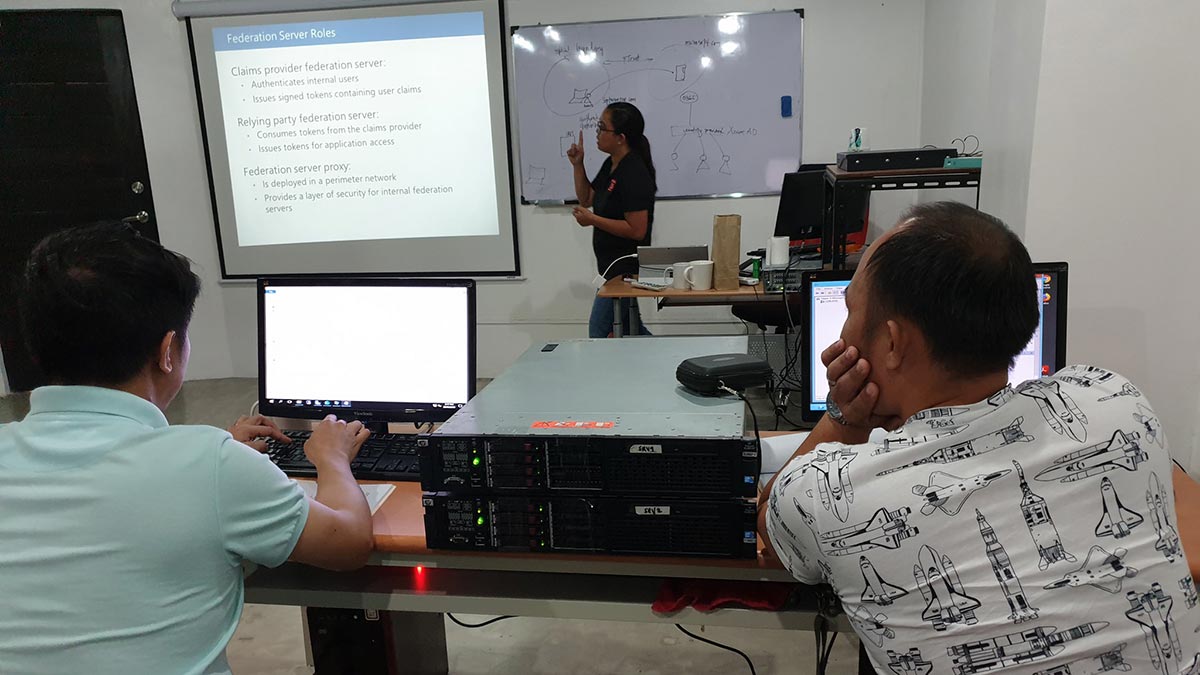
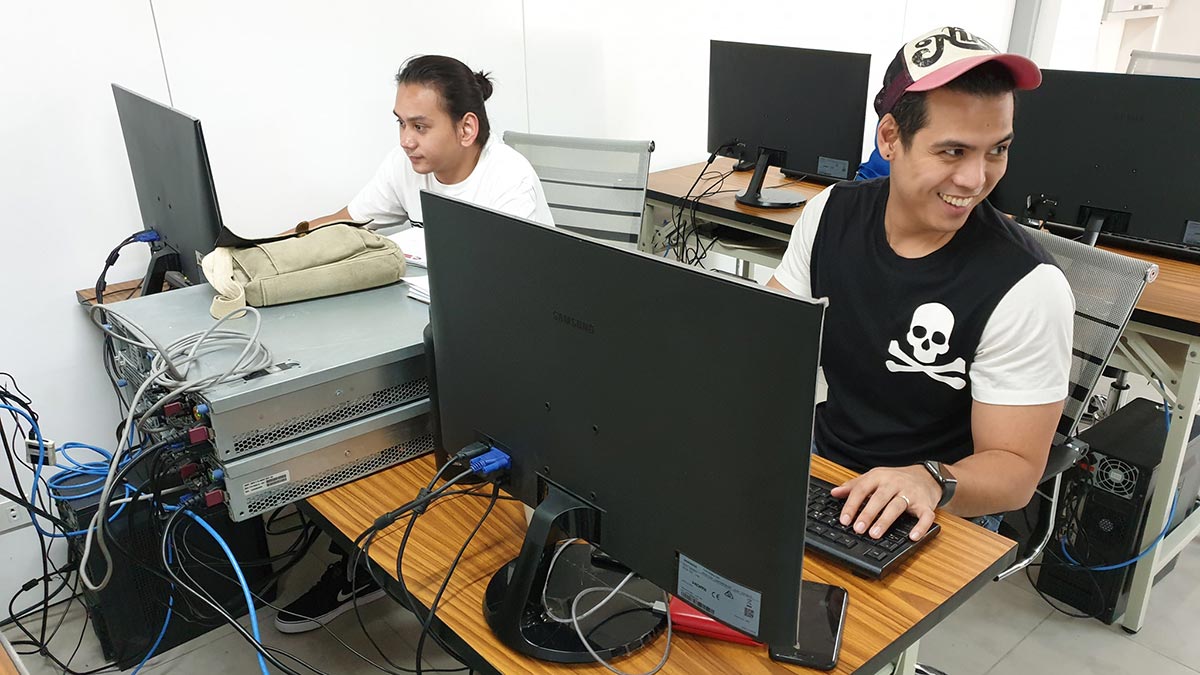
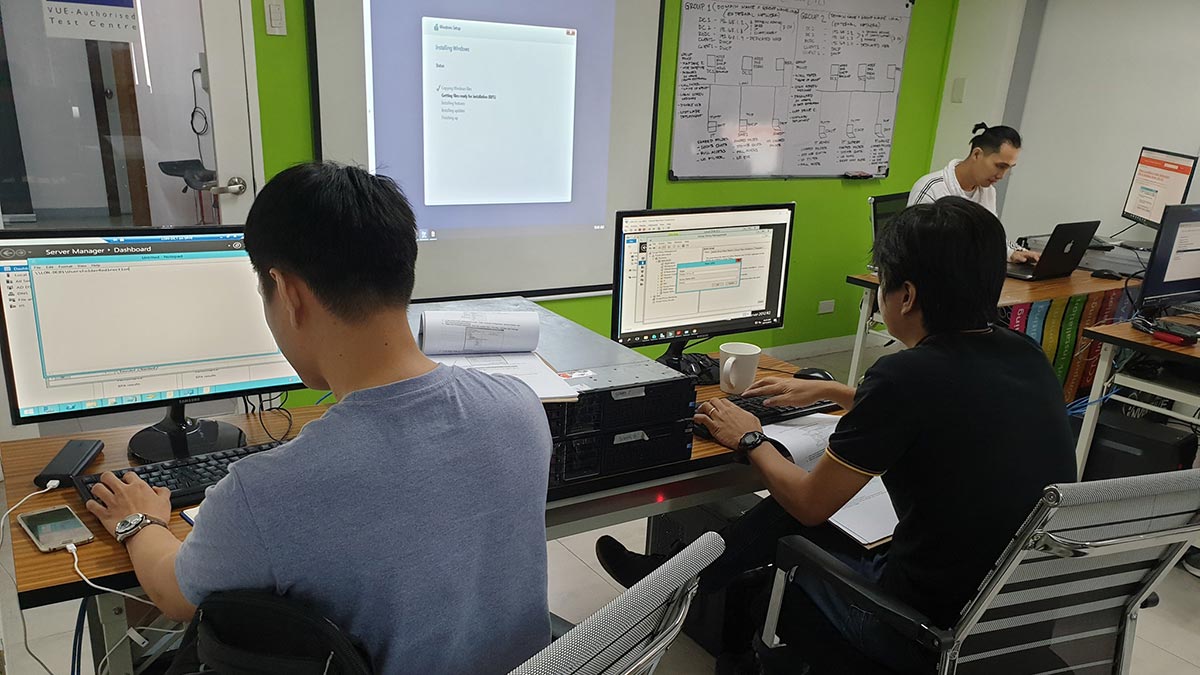
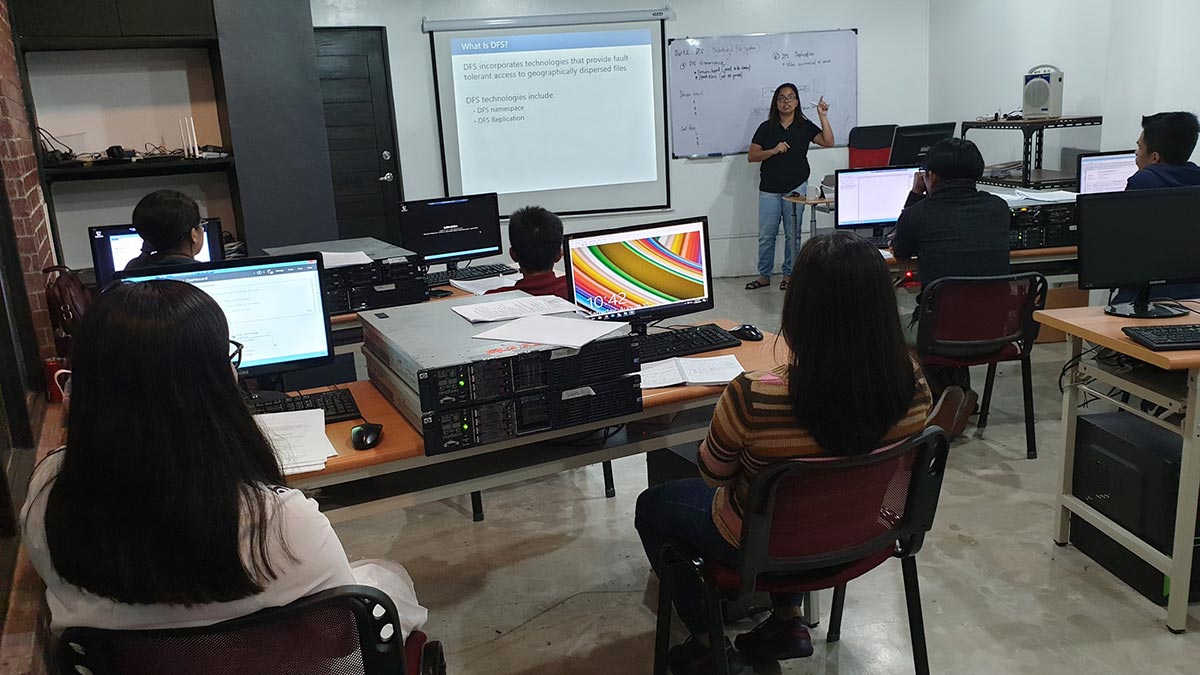
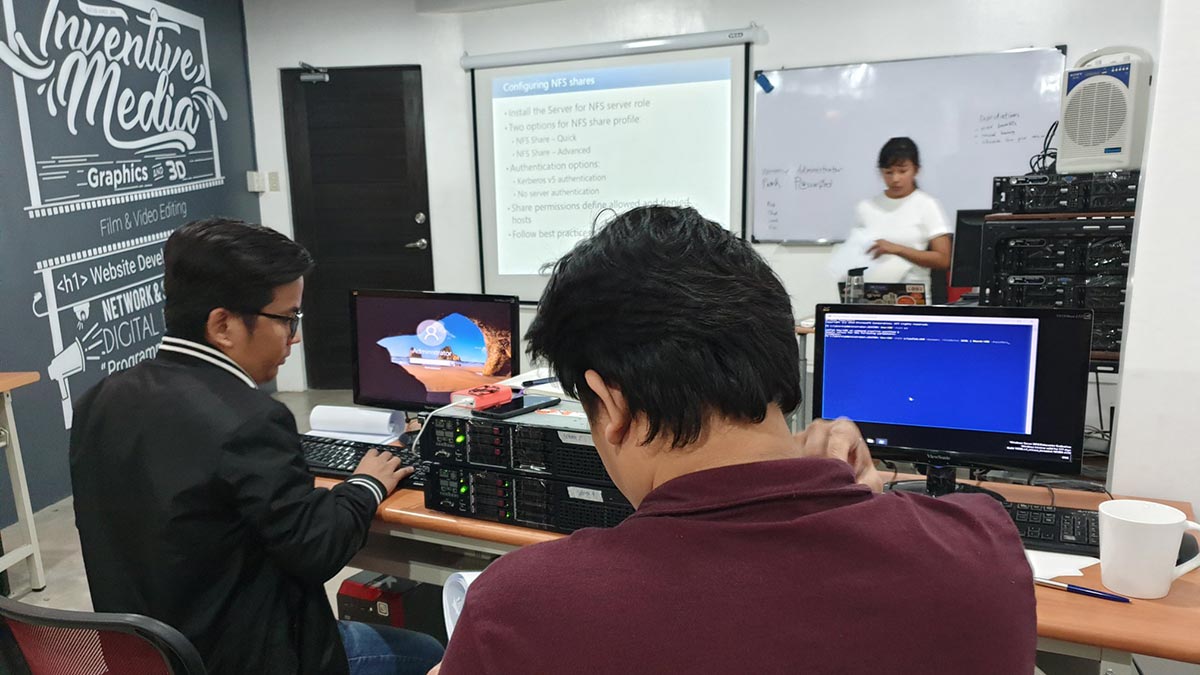
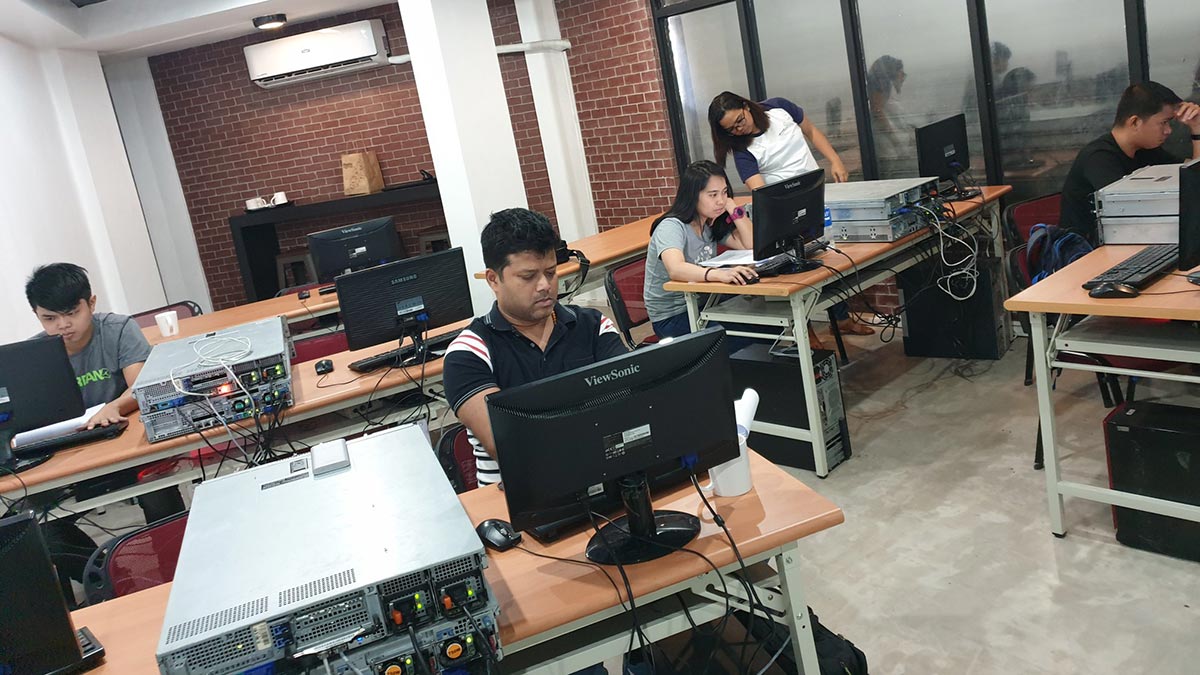
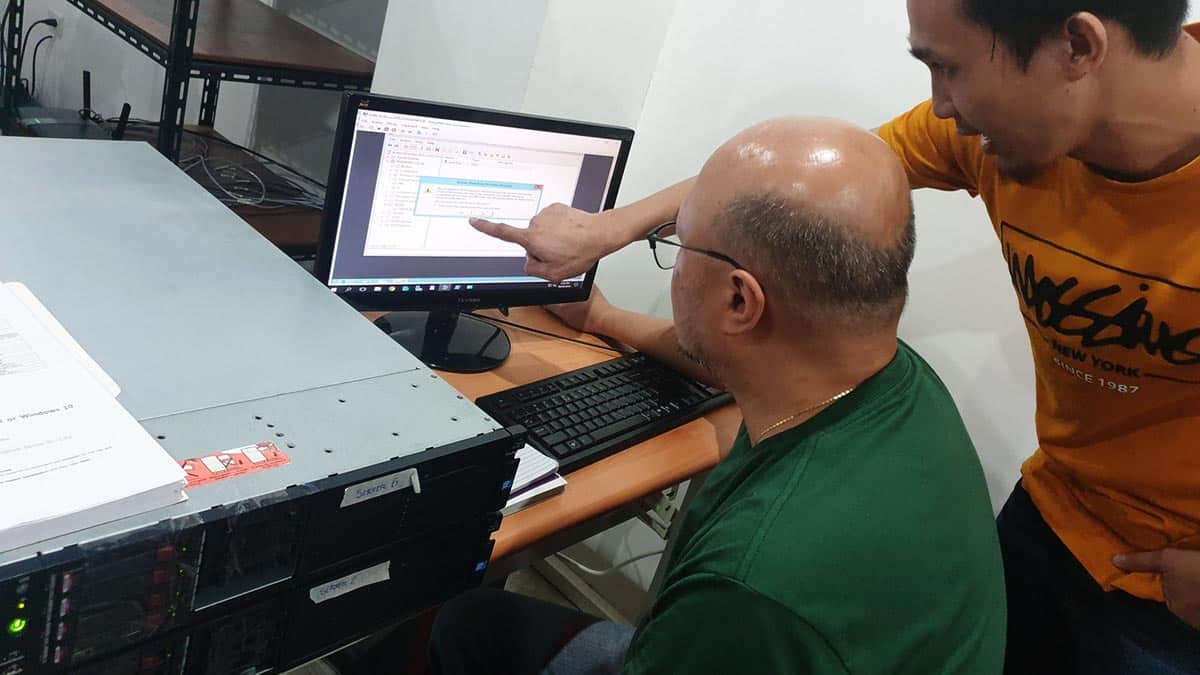
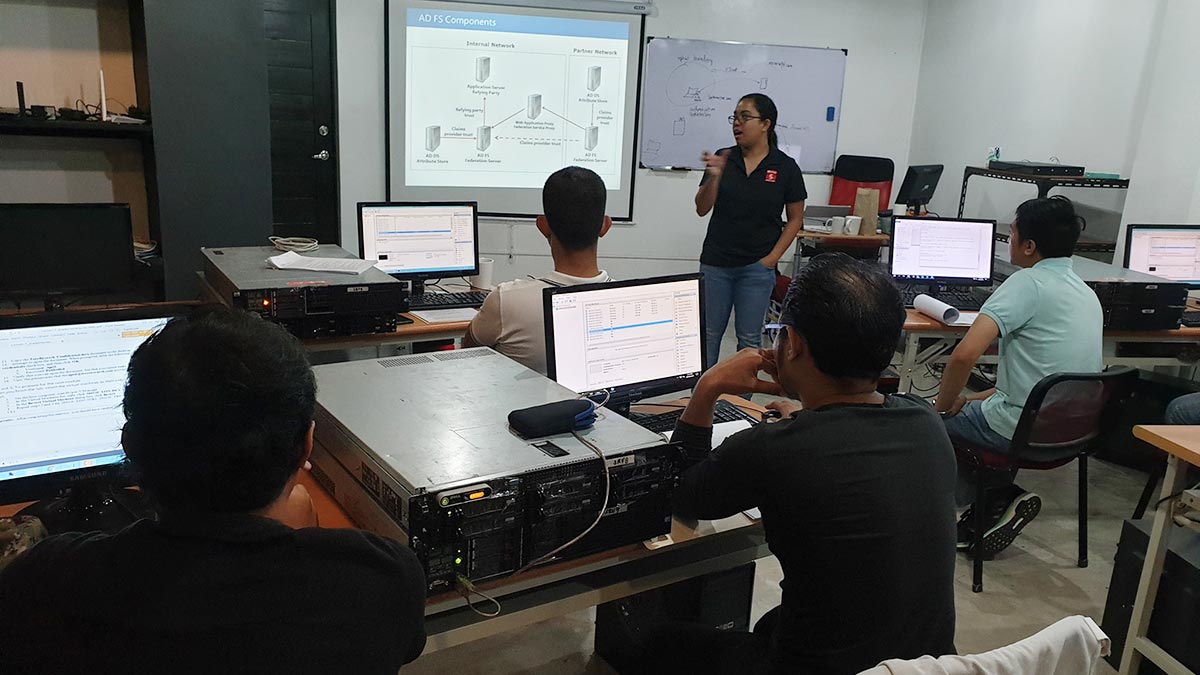
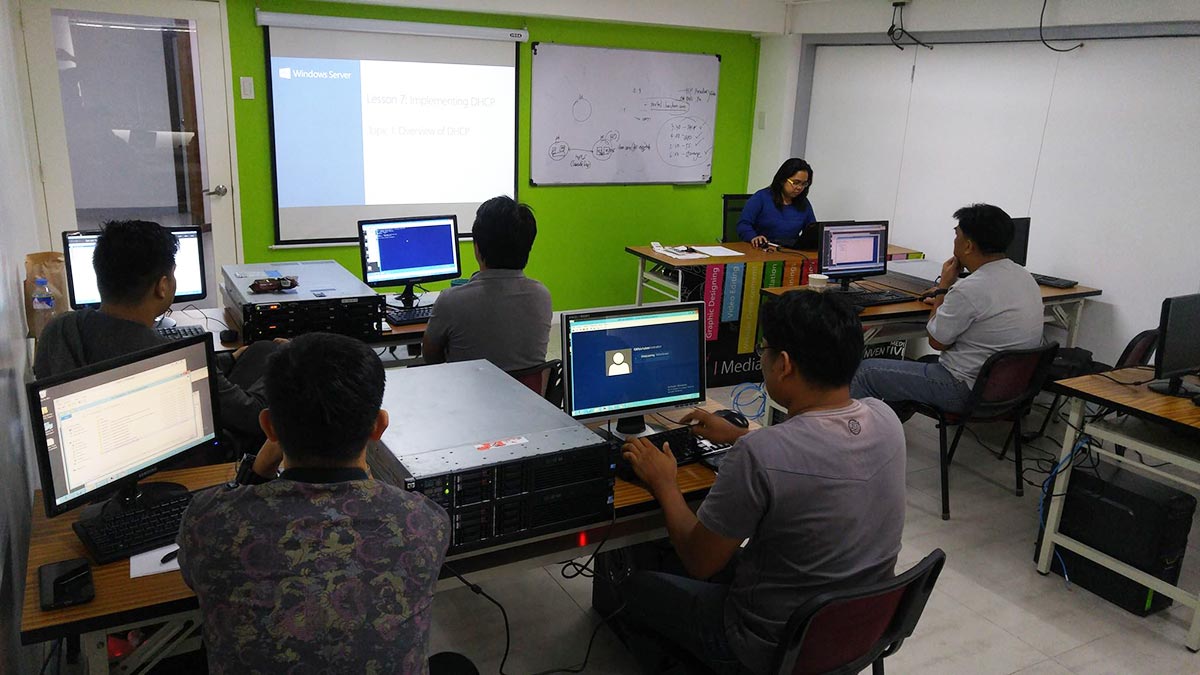

Use of Actual Rack Servers during Training
Single Course Promo
|
₱
14,000
Regular Fee |
₱
1,500
less
New Student Discount |
₱
2,500
less
Alumni Discount |
Schedules
march 2025
april 2025













